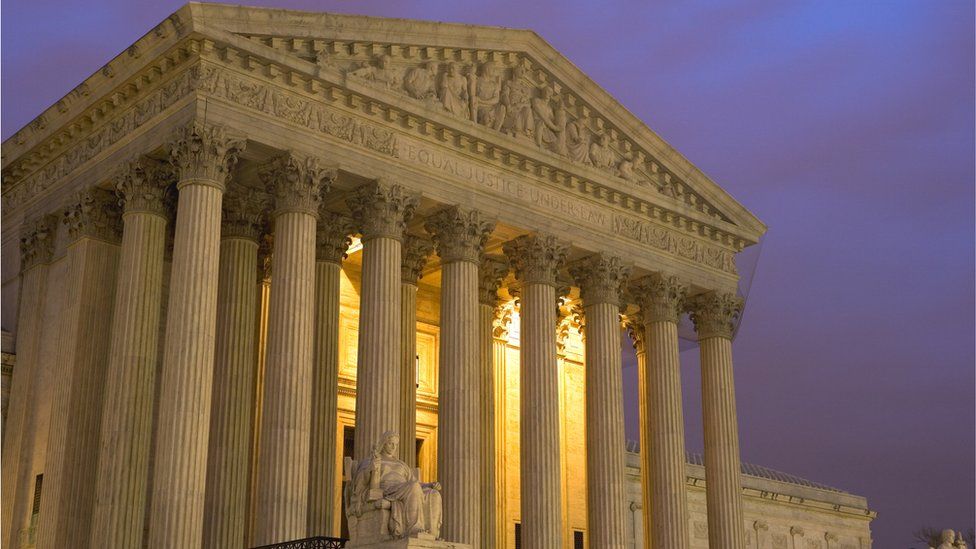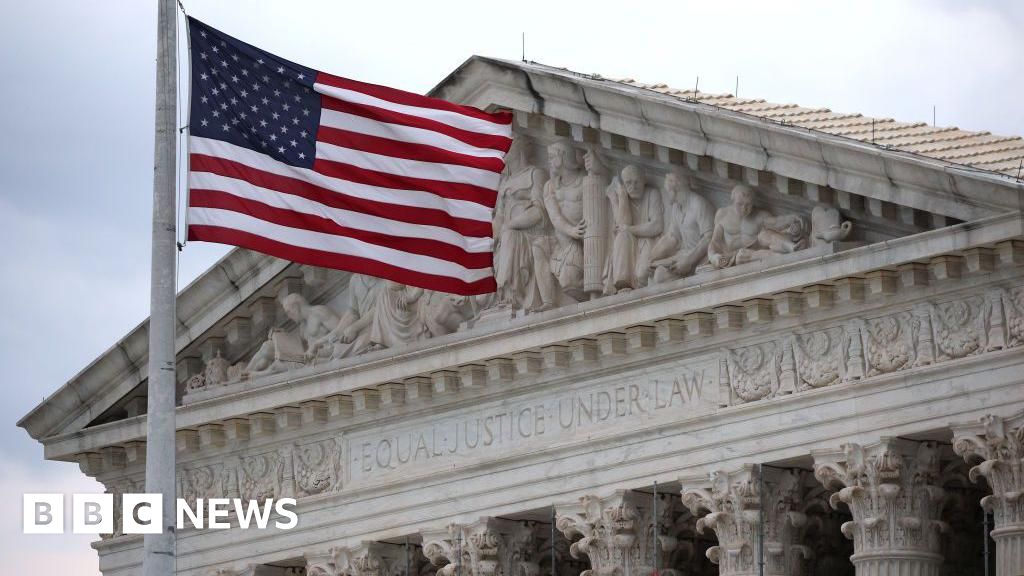ARTICLE AD BOX
 Image source, Getty Images
Image source, Getty Images
By Matt Murphy & Tom Gerken
In Washington DC & London
US Supreme Court justices appeared torn on Monday as they heard a landmark pair of cases which could fundamentally alter the future of online free speech.
At issue were Republican-backed laws passed in Florida and Texas limiting tech firms' ability to remove political content they deem objectionable.
Tech giants said the laws, passed after the 2021 Capitol riot, infringed on their right to editorial discretion.
At times justices seemed unsure of how to apply existing law to tech firms.
Industry groups have argued that the laws passed in Florida and Texas violated the right to free speech, which included the freedom of private companies to decide what content to publish on their platforms.
Supporters of the laws say they protect the First Amendment rights of conservative users from censorship by what they imply are left-leaning tech companies.
The First Amendment to the US Constitution protects the freedom of speech and expression of American citizens from being censored by the government.
On Monday, the back-and-forth between the justices and attorneys often centred around comparisons, in particular whether social media firms like YouTube and Facebook were more akin to newspapers or telephone companies.
Justice Alito, a conservative member of the court, voiced concern as to whether editorial protections afforded to newspapers were applicable to social media giants. At one point the 73-year-old quipped "if YouTube were a newspaper, how much would it weigh".
Henry Whitaker, Florida's solicitor general, laid out the conservative argument for the court, claiming that tech giants applied censorship policies "in an inconsistent manner" to "deplatform" certain users.
"They contend that they possess a broad First Amendment right to censor anything they host on their sites, even when doing so contradicts their own representations to consumers," Mr Whitaker said. "But the design of the First Amendment is to prevent the suppression of speech, not to enable it."
Former President Donald Trump, who was removed from Facebook, Twitter and YouTube in the wake of his inflammatory comments during the Capitol riot, filed in support of the state laws. He argued that tech firms' "decision to discriminate against a user" is not protected under the Constitution.
But a trade group representing the tech giants, and supported by the Biden administration, told the court on Monday that the laws would infringe on their own First Amendment rights by effectively barring them from removing content or accounts which they do not want on their sites - or which would usually be removed under content policies.
Paul Clement, a lawyer presenting the cases on behalf of NetChoice, cited previous Supreme Court rulings that held that private organisers could not be forced to carry messages they did not agree with.
He also suggested that if companies were prevented from moderating content they could be forced to carry all sorts of objectionable content, including antisemitic and pro-suicide posts.
Brett Kavanaugh, a conservative justice appointed by Mr Trump, challenged Mr Whitaker to reconcile the Florida law with prior Supreme Court rulings that "emphasise editorial control as being fundamentally protected by the First Amendment".
Justices seemed sceptical of the sprawling nature of the laws, which they said may be unconstitutional where applied to a Facebook post, but may be permitted when protecting communications on other non-expressive apps, such as the provision of email services.
Justice Alito and Sonia Sotomayor, a liberal, both raised the possibility of returning the case to a lower court to further develop who exactly is covered by the Florida bill in particular.
US Solicitor General Elizabeth Prelogar, speaking in support of the tech lobby's case, urged the court to rule narrowly on what she called a "defect" in the Texas law, rather than issuing broad findings on how the first amendment interacts with social media.
Conservatives in the US have long assailed tech giants over their moderation policies, which they say is unfairly biased towards left-wing views.
When signing the Texas bill into law, Gov Greg Abbott said: "It is now law that conservative viewpoints in Texas cannot be banned on social media."

 1 year ago
70
1 year ago
70








 English (US) ·
English (US) ·